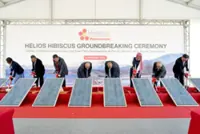PETALING JAYA: Industry players have called for more clarity on the Imbalance Cost Pass-Through (ICPT) mechanism, following the government’s decision to maintain the electricity surcharge for commercial users.
Manufacturers, in general, are unhappy that the surcharge of 17 sen per kilowatt hour (kWh) was not reduced, despite the dip in global fuel prices.





